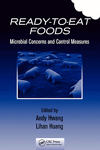EU Alters Flavoring Rules

Used to alter the taste and/or odor of food, flavorings substances have a long history of safe use in a wide variety of foods, such as soft drinks, confectionery, cereals, cakes and yogurts, and have now been evaluated at EU level.
"Thanks to on-going efforts by the European Food Safety Authority (EFSA) and other scientific bodies, this legislation on flavoring substances will vastly improve the transparency of information to citizens and industry alike. It will be easier for all concerned to know exactly which flavoring substances can be used in food." said John Dalli Health and consumer policy commissioner.
These two new pieces of legislation will clarify and harmonize the use of flavoring substances within the single market:
• The first regulation provides for a new EU-wide list of flavoring substances which can be used in food and will apply beginning April 22, 2013, giving time for the EU food industry to adapt to the new rules. All flavoring substances not in the list will be prohibited after a phasing out period of 18 months.
• The second regulation concerns transitional measures for other flavorings, such as flavorings made from non-food sources and will apply from October 22, 2012.
The new list includes over 2,100 authorized flavoring substances. A further 400 will remain on the market until EFSA concludes its evaluation. These have been used for a long time and have already been assessed as safe by other scientific bodies.
Increased Transparency
Transparency and clarity of information is one of the main benefits of the new rules. The authorized uses of flavoring substances will be listed according to the category of food to which they may be added. Transparency will be improved, as the list will also be available in an online database, allowing consumers, food businesses and national food control authorities to easily identify which flavoring substances are authorized in food.
Conditions for authorizing flavoring substances
A flavoring substance may only be authorized if its use meets the following conditions:
• it does not, on the basis of the available scientific evidence, pose risks to the health of the consumer at the level of the proposed use;
• its use does not mislead the consumer.
When authorizing flavorings other relevant factors may also be considered. These could include amongst others ethical, traditional or environmental factors.
Enforcement
National enforcement authorities have the task to ensure that food containing any unauthorized flavoring substances is withdrawn from the market. They should also inform the European Commission and other member states on the substance in question through the EU's Rapid Alert System for food and feed (RASFF).
Looking for a reprint of this article?
From high-res PDFs to custom plaques, order your copy today!






